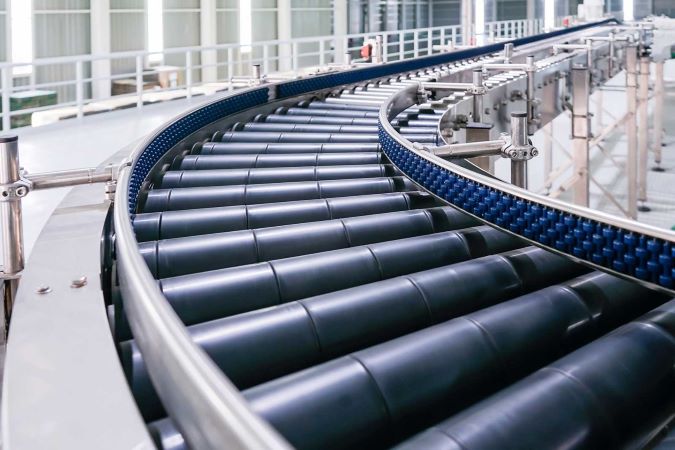
Omnidirectional rollers, also known as ball transfer rollers, are installed in conveyor systems to guide products along the desired path during transportation. These rollers are designed to change the direction of product movement at various angles, enabling operations such as rotating, pushing longitudinally, or laterally, with excellent load-bearing capacity.
Omnidirectional rollers are available in two material options: steel and plastic. Regardless of the material, they are proven to exhibit excellent rust resistance, smooth operation, and adaptability to various environmental conditions. These rollers deliver high productivity, long service life, and cost efficiency.

Structurally, ball transfer rollers are composed of a supporting housing with a central axis where the ball bearings are mounted, ensuring a tight and precise fit within the housing. During manufacturing, high-precision machining is required to achieve concentric, uniformly spherical balls.
To enhance their surface smoothness, anti-adhesion properties, and resistance to oxidation, a coating of carbon steel or stainless steel is applied to the roller surface.
☑ 360-Degree Movement: Capable of directing products in any direction with full rotational freedom.
☑ Seamless Operation: Ensures smooth product transitions, supporting production line automation in industrial settings.
☑ Material Options and Durability:
Available in various sizes and two primary types: steel ball rollers and plastic ball rollers.
Designed for horizontal installation, allowing multidirectional rotation, excellent wear resistance, high durability, and ease of repair, maintenance, or replacement.
Having explored the concept and standout features of this product, let us delve into its practical applications:
➢ Outdoor and Indoor Use:
Stainless steel ball rollers are suitable for both outdoor and indoor environments, thanks to their ability to withstand sunlight, rain, high temperatures, and chemical exposure.
Gold-plated steel ball rollers are more suited for indoor use as they lack resistance to outdoor temperatures and chemicals.
➢ Conveyor Integration: Commonly used in conveyor systems at transition points between two conveyors, for sorting goods, and in locations requiring rotational adjustments or changing the orientation of containers.
➢ Machinery Mobility: Serve as wheels for moving heavy machinery.
➢ Industrial Applications: Extensively employed in industries such as food processing, carton transportation, electronic component handling, and light industrial production.
Omnidirectional rollers are an indispensable component for modern industries seeking to enhance efficiency, flexibility, and automation in their operations.



Create a free Listing to introduce your business and be visible to your potential customers
_________________________________
YELLOW PAGES CONTACT
+84 24.3636.9512 (Ext 312)
Hotline/ Zalo: +84 914 261 828 (Ms Amy)
